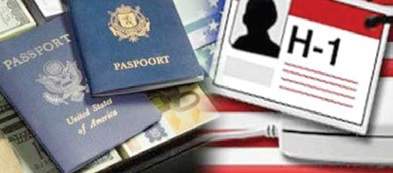Washington, Feb 15: A powerful Republican Senator has said he does not expect President Donald Trump to weaken the H-1B visa scheme, sought-after by Indian IT professionals, as the programme benefits Americans and the US economy.
 Senator Orion Hatch, Senate Finance Committee Chairman, said that in his several meetings with Trump he had discussed the economic benefits of preserving and expanding H-1B visas programme, which is popular among Indian IT professionals.
Senator Orion Hatch, Senate Finance Committee Chairman, said that in his several meetings with Trump he had discussed the economic benefits of preserving and expanding H-1B visas programme, which is popular among Indian IT professionals.
Hatch told 'Morning Consult', a media technology company, that his time with Trump has convinced him that the President will take a pragmatic approach to H-1Bs.
"Anything that creates jobs, anything that moves this economy forward. And I think he can put political feelings aside. And I expect him to, and I'll make sure he does," the Republican Senator from Utah said yesterday.
Hatch is expected to roll out a tech-focused "Innovation Agenda for the 115th Congress," in which he is likely to push for an increase in H-1B visa number.
H1B visa is a non-immigrant visa that allows American firms to employ foreign workers in speciality occupations that require theoretical or technical expertise. The tech companies depend on it to hire tens of thousands of employees each year.
He had made a similar effort in 2015 when he introduced a bill to raise the annual cap of H-1B visas to between 115,000 to 195,000, based on market conditions.
"While some have expressed some reservations about the impact of high-skilled immigration on American jobs, I believe we can and will be able to make a convincing case for reform. The data is on our side," said Hatch who met Trump some two weeks ago.
He said Trump appears to recognise the importance of the high-skilled guest worker programme for overall job growth and economic productivity. Hatch exuded confidence that he can convince the President that the data on H-1B visas shows how the programme benefits American workers and the US economy, the report said.
India is one of the top sources for international workers in the American tech industry, accounting for a major chunk of all H-1B visas. And any move by Trump, who has vowed to put an "America First" policy, will have an adverse impact in India.




Comments
Add new comment